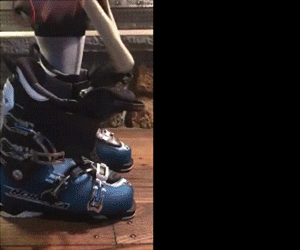SallyCat
Ski Diva Extraordinaire
Weird question, but does anyone know what it's like to ski/ride with vision in only one eye?
I'm awaiting a diagnosis regarding a possible melanoma in my left eye. I saw the pics at the Dr's office, and it doesn't look great (large and not al all uniform) so I'm trying to prepare to be optimistic if it's bad news. I would think it might affect riding more than skiing because your field of vision is already limited on a board. And maybe skiing on crowded days might not be a great idea on account of limited peripheral vision. But I'm trying to focus on what I would still be able to do so as not to get too down about it.
I'm awaiting a diagnosis regarding a possible melanoma in my left eye. I saw the pics at the Dr's office, and it doesn't look great (large and not al all uniform) so I'm trying to prepare to be optimistic if it's bad news. I would think it might affect riding more than skiing because your field of vision is already limited on a board. And maybe skiing on crowded days might not be a great idea on account of limited peripheral vision. But I'm trying to focus on what I would still be able to do so as not to get too down about it.

 As Christy mentions above, it's truly amazing what your brain can compensate for.
As Christy mentions above, it's truly amazing what your brain can compensate for.